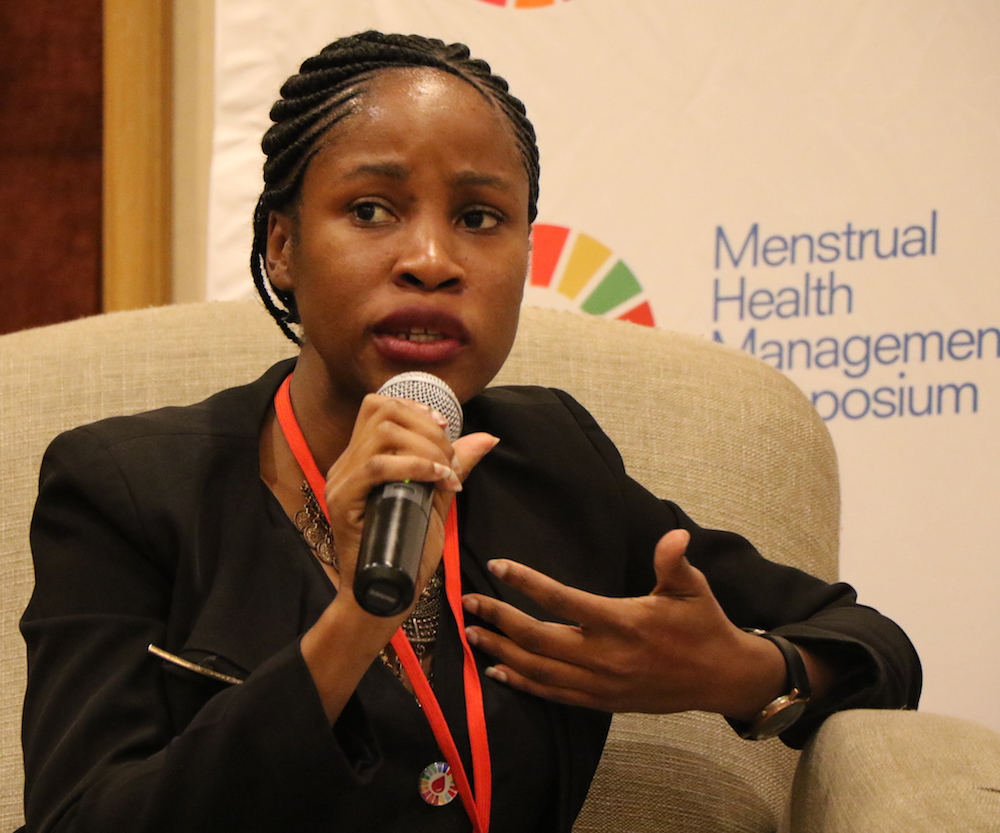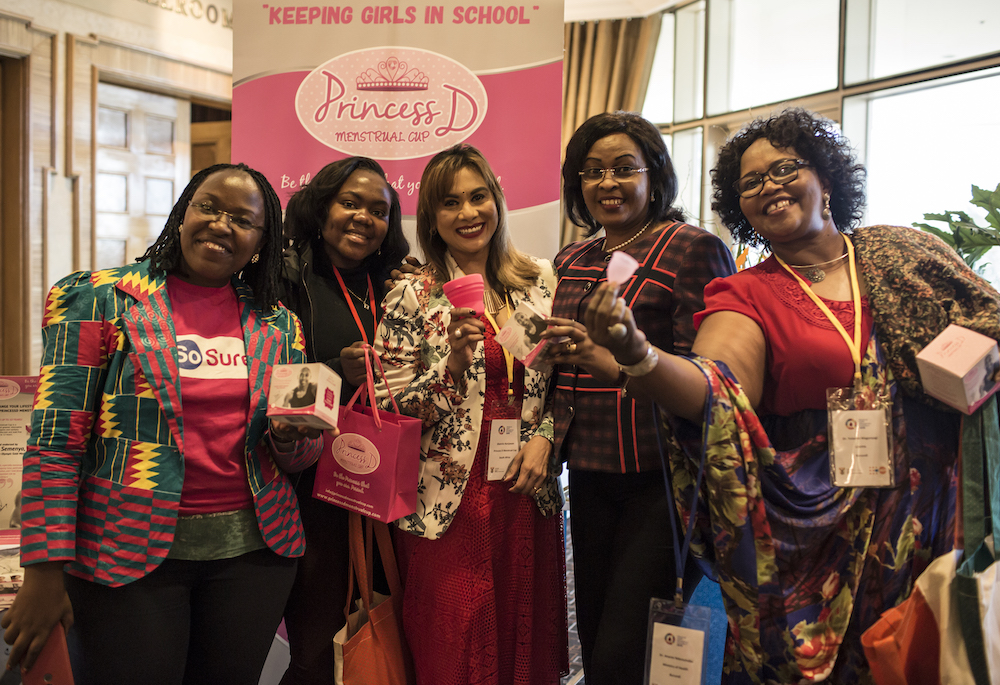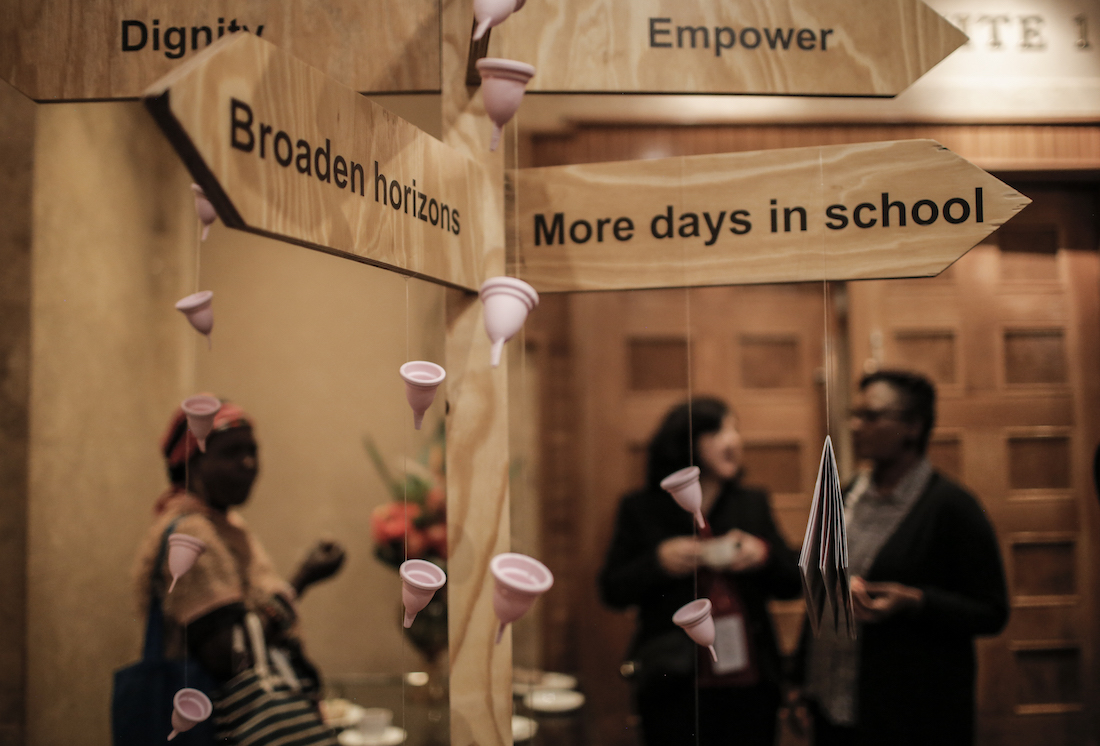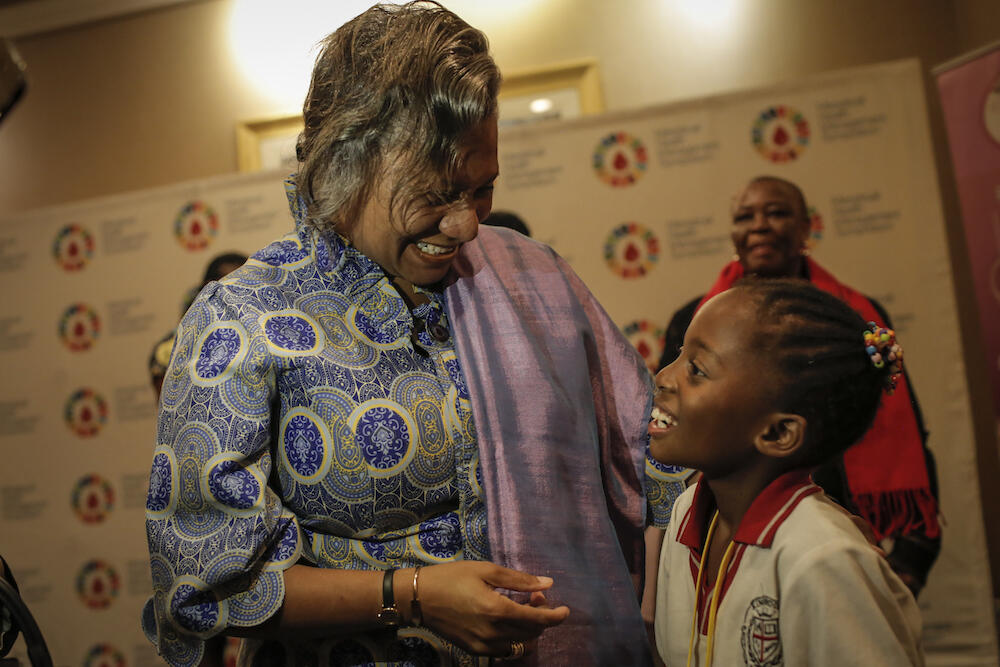JOHANNESBURG, South Africa—The ground-breaking Menstrual Health Management Symposium, a first in Africa, closed with a powerful Call to Action to ensure that the most marginalized and vulnerable women and girls are reached.
More than half of the population that votes menstruates and we must not be ashamed of raising this point when we talk about the issue of menstruating, said Bathabile Dlamini, Minister for Women in the Presidency, Government of South Africa, in her closing remarks.
As we agree to leave no one behind, we need to ensure that boys, men and families understand the issues of menstrual health management.

“Let us occupy our space as women,” she urged. “And as we agree to leave no one behind, we need to ensure that boys, men and families understand the issues of menstrual health management.”
Access to information is critical, and the symposium presented a strong start in this regard. “UNFPA, you have maximized and deepened the way we think about and express ourselves on the issues of menstrual health management,” she said.
Be transformational, build on what exists
On the issue of menstrual health, be bold, vocal and visible, urged Dr. Julitta Onabanjo, UNFPA Regional Director for East and Southern Africa. The issue requires an ambitious multi-sectoral response that builds on what already exists: “We need to be transformational going forward.”
UNFPA is committed to collaboration with the Department of Women. “It was a privilege to work with the Department of Women as a team effort, and to commit to the collaboration as we go forward,” she said.
Marginalized women left behind
If we are to advance the reproductive health and rights of girls and women in the next decade, menstrual health provides a critical opening to the constellation of sexual and reproductive health and rights (SRHR) matters. And it is key to ensure that all groups of women and girls are included – including marginalized and vulnerable groups – so that no one is left behind. The symposium provided an opportunity to hear speakers from some of these marginalized communities.

Christina Changaira from FEMPRIST, Zimbabwe, was arrested, beaten and tortured by police. She received no medical care for 30 days, and was refused any menstrual products. Women in Zimbabwean prisons face huge challenges when it comes to menstrual health management, she said. They often have to tear up blankets and use rags as pads. “Often there’s no water, or no running water. There are no sanitary bins. You have to find ways to dispose pads or rags, leading to increased health risks."
Those living with HIV face a double stigma when it comes to menstrual health management.

Millions of girls and women who are living with HIV in the region are especially vulnerable.
“Those living with HIV face a double stigma when it comes to menstrual health management,” said Laura Thuo, from International Community of Women Living with HIV.
“Lack of availability and affordability of menstrual products means that women and girls become more vulnerable to exploitation and HIV. When you’re living with HIV, you always think your blood is infectious, so you’re afraid of talking to anyone about menstruation.”
Gender dysphoria is an issue that we face on a daily basis during menstruation. You identify as a man but you’re going through your menses.

Add to the mix men who menstruate. “Gender dysphoria is an issue that we face on a daily basis during menstruation. You identify as a man but you’re going through your menses,” shared Tinashe Sande, from Transgender Intersex Rising, Zimbabwe. “There are very few sanitary-ware options for the trans community. In Zimbabwe, you can’t find a gender-neutral toilet. You get told you’re in the wrong bathroom. And if you enter the male bathroom, there are no cubicles or sanitary bins.”
And consider the challenges that female refugees face: “Where do women or girls dry a washable pad in privacy, in refugee groups?” asked Yasmin Rajah from Refugee Social Services.
These are some of the examples of women and girls’ experiences presented at the symposium, illustrating the depth and breadth of menstrual health issues.
Championing excellence in menstrual health management
After extensive discussions, the participants agreed on a Call to Action to break the silence on menstruation issues, and to commit to the following:

- Establish an Africa Coalition for Menstrual Health Management to share experiences and evidence, and coordinate efforts to address MHM issues in Africa;
- Strengthen national efforts to support policy reviews and policy development to promote and integrate menstrual health management;
- Strengthen integration and coordination of menstrual health management matters into existing development programmes;
- Partner with institutions and organizations to develop a framework to guide national multi-sectoral MHM programmes;
- Increase efforts to engage with communities, religious and cultural leaders as well as men and boys to address social and cultural norms upholding positive practices and transforming discriminatory and unhealthy practices for improved menstrual health;
- Call on decision makers to coordinate efforts to promote integrated and comprehensive MHM at legislative and policy level with adequate financial resources to ensure sustainability and accountability.
Read: Menstrual Health Management in East and Southern Africa: A Review Paper



